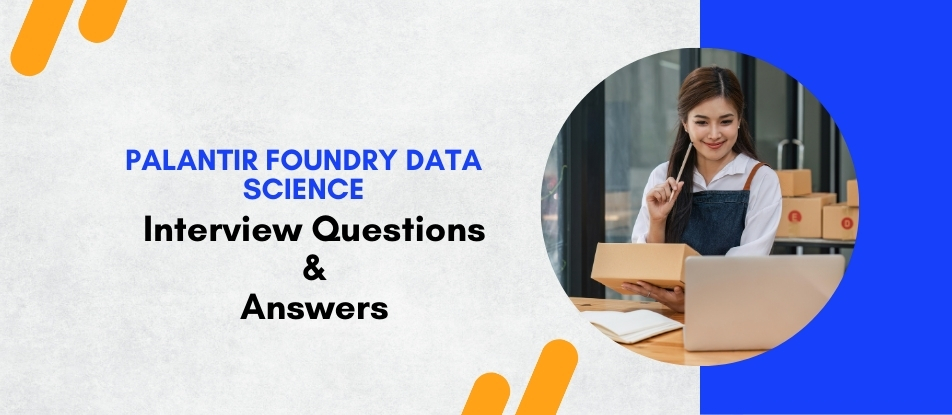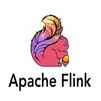
Master data science techniques with Palantir Foundry Data Science Online Training. This course empowers professionals to harness the full potential of Palantir Foundry for data integration, analysis, and visualization. Learn to create data-driven solutions, streamline workflows, and build impactful insights with hands-on sessions and expert guidance. Perfect for data enthusiasts aiming to excel in advanced analytics and decision-making.
Palantir Foundry Data Science Interview Questions Answers - For Intermediate
1. What is the primary purpose of Palantir Foundry in data science workflows?
Palantir Foundry serves as a comprehensive data integration and analytics platform, enabling data scientists to ingest, transform, analyze, and visualize data from disparate sources. It facilitates collaborative workflows, ensuring seamless data accessibility and governance, which enhances the efficiency and effectiveness of data-driven decision-making processes.
2. Explain the concept of “Data Lineage” in Foundry.
Data Lineage in Foundry tracks the origin, transformation, and movement of data throughout its lifecycle. It provides visibility into how data flows through various pipelines and processes, ensuring transparency, aiding in debugging, compliance, and understanding the impact of changes within the data ecosystem.
3. How does Foundry’s Code Workbook support data science activities?
Code Workbook in Foundry is an integrated development environment that allows data scientists to write, execute, and collaborate on code using languages like Python and R. It supports version control, integrates with Foundry’s data repositories, and enables the development of reproducible data analyses and models within the platform.
4. What are Foundry’s Transform Pipelines and their significance?
Transform Pipelines in Foundry are workflows that define data transformation processes. They allow data scientists to create, schedule, and manage sequences of operations to clean, aggregate, and prepare data for analysis. These pipelines ensure data consistency, scalability, and automation in handling large datasets.
5. Describe how Foundry manages data security and access control for data scientists.
Foundry employs robust data security measures, including role-based access control (RBAC), encryption, and auditing. Data scientists are granted permissions based on their roles, ensuring they access only authorized data. Fine-grained controls and compliance features protect sensitive information and maintain data integrity.
6. What is the role of Ontologies in Palantir Foundry?
Ontologies in Foundry define the semantic structure and relationships of data entities. They provide a common language and framework for data integration, ensuring consistency and enabling meaningful data analysis. Ontologies facilitate data discovery, enrichment, and interoperability across different datasets.
7. How does Foundry integrate with machine learning libraries and frameworks?
Foundry integrates with popular machine learning libraries like TensorFlow, sci-kit-learn, and PyTorch through its Code Workbook. It allows data scientists to build, train, and deploy models within the platform, leveraging Foundry’s data management and computational resources to streamline the machine learning lifecycle.
8. Explain the use of Foundry’s Visualization Tools in data science projects.
Foundry’s Visualization Tools enable data scientists to create interactive dashboards, charts, and graphs to explore and present data insights. These tools support dynamic data exploration, facilitating the identification of patterns, trends, and anomalies, and enhancing the communication of findings to stakeholders.
9. What is a “Dataset” in Foundry, and how is it utilized in data science?
A Dataset in Foundry is a structured collection of data, often derived from various sources and processed through transformation pipelines. Data scientists use Datasets as the foundational inputs for analysis, modeling, and visualization, ensuring that they work with consistent and well-defined data structures.
10. How does Foundry support collaborative data science among team members?
Foundry fosters collaboration through shared workspaces, version control, and real-time collaboration features in Code Workbook. Team members can jointly develop pipelines, share insights, and manage projects collectively, enhancing teamwork and ensuring alignment across data science initiatives.
11. Describe the process of deploying a machine learning model in Foundry.
Deploying a machine learning model in Foundry involves training the model within Code Workbook, validating its performance, and then integrating it into a production pipeline. Foundry manages the deployment, scaling, and monitoring, allowing the model to be accessed by applications or users for real-time predictions.
12. What are Foundry’s Data Apps, and how do they benefit data scientists?
Data Apps in Foundry are customizable applications built on the platform’s data and tools. They allow data scientists to create tailored interfaces for specific analysis tasks, automate workflows, and provide end-users with interactive tools to explore data insights without needing deep technical expertise.
13. How does Foundry handle real-time data processing for data science applications?
Foundry supports real-time data processing through streaming pipelines and integration with real-time data sources. This capability enables data scientists to analyze and respond to live data streams, facilitating timely insights and actions for applications requiring up-to-the-minute information.
14. Explain the importance of Metadata Management in Foundry for data science.
Metadata Management in Foundry involves organizing and maintaining information about data assets, such as their structure, origin, and usage. For data science, this ensures data discoverability, enhances data quality, and supports efficient data governance, making it easier to understand and utilize data effectively.
15. What is Foundry’s “Schema Evolution,” and why is it important?
Schema Evolution in Foundry refers to the ability to manage and adapt changes in data structures over time. It allows data scientists to handle modifications in datasets without disrupting workflows, ensuring that analyses and models remain robust and up-to-date despite structural changes in the underlying data.
16. How does Foundry facilitate data enrichment for enhancing data science models?
Foundry facilitates data enrichment by integrating external data sources, applying transformations, and merging diverse datasets. This enhances the quality and breadth of data available for modeling, allowing data scientists to build more comprehensive and accurate models by leveraging enriched data attributes.
17. Describe the role of APIs in extending Foundry’s data science capabilities.
APIs in Foundry allow data scientists to integrate external tools, services, and custom applications with the platform. They enable automation, data retrieval, and interaction with Foundry’s functionalities programmatically, extending its capabilities and allowing seamless integration into broader data ecosystems.
18. What are Foundry’s Scheduling Features, and how do they assist data science workflows?
Foundry’s Scheduling Features allow data scientists to automate the execution of transformation pipelines, model training, and data processing tasks at specified intervals. This ensures timely updates, maintains data freshness, and reduces manual intervention, enhancing workflow efficiency and reliability.
19. How does Foundry support version control in data science projects?
Foundry supports version control through integration with systems like Git, enabling data scientists to track changes in code, datasets, and pipelines. This facilitates collaboration, ensures reproducibility, and allows rollback to previous versions if needed, maintaining the integrity of data science projects.
20. Explain how Foundry’s Marketplace can be utilized by data scientists.
Foundry’s Marketplace offers pre-built data assets, applications, and components that data scientists can leverage to accelerate their projects. It provides access to external datasets, analytical tools, and reusable modules, enabling data scientists to enhance their workflows and incorporate external insights without starting from scratch.
Palantir Foundry Data Science Interview Questions Answers - For Advanced
1. How does Palantir Foundry integrate with existing data infrastructure to ensure seamless data pipeline management?
Palantir Foundry leverages its modular architecture to integrate with existing databases, cloud services, and on-premises systems. It utilizes APIs, connectors, and data ingestion tools to synchronize data sources, ensuring seamless pipeline management. Foundry’s metadata framework and lineage tracking facilitate smooth data flow and interoperability across diverse infrastructures.
2. Explain the role of Code Workbooks in Foundry for advanced data analysis and modeling.
Code Workbooks in Foundry provides a collaborative environment for writing, executing, and sharing code in languages like Python and R. They enable data scientists to perform advanced analyses, build models, and visualize results within the platform. Integrated version control and real-time collaboration enhance productivity and ensure the reproducibility of complex data workflows.
3. Describe how Foundry’s Ontology framework supports data governance and consistency across projects.
Foundry’s Ontology framework defines a unified data model with standardized definitions, relationships, and access controls. It enforces data governance by ensuring consistent terminology, data quality, and security policies across projects. This centralized schema management facilitates collaboration, reduces data silos, and maintains integrity and compliance throughout the data lifecycle.
4. How can machine learning workflows be optimized within Palantir Foundry’s platform?
Machine learning workflows in Foundry are optimized through integrated tools for data preparation, feature engineering, model training, and deployment. Foundry supports scalable compute resources, automated pipelines, and versioning. Its collaborative environment allows data scientists to iterate efficiently, monitor model performance, and deploy models seamlessly into production environments.
5. What are the key features of Foundry’s data lineage capabilities, and how do they benefit data scientists?
Foundry’s data lineage tracks the origin, transformation, and movement of data across workflows. Key features include visual lineage graphs, impact analysis, and version tracking. This transparency helps data scientists understand data dependencies, troubleshoot issues, ensure compliance, and maintain trust in data quality, ultimately enhancing the reliability and efficiency of data-driven projects.
6. Discuss the scalability options available in Palantir Foundry for handling large-scale data science projects.
Palantir Foundry offers scalable infrastructure through cloud integration, distributed computing, and elastic resource management. It supports parallel processing, data partitioning, and optimized storage solutions to handle vast datasets. Foundry’s architecture allows seamless scaling up or out based on project demands, ensuring performance and responsiveness for large-scale data science initiatives.
7. How does Foundry facilitate real-time data processing and analytics for data science applications?
Foundry enables real-time data processing through streaming data connectors, in-memory computations, and low-latency pipelines. Its platform supports continuous data ingestion, instant transformations, and real-time analytics dashboards. This capability allows data scientists to build applications that respond to live data, enabling timely insights and dynamic decision-making.
8. Explain the security mechanisms in Foundry that protect sensitive data during data science workflows.
Foundry incorporates robust security mechanisms including role-based access control (RBAC), encryption at rest and in transit, and data masking. It enforces granular permissions, audit trails, and compliance with industry standards. These features ensure that sensitive data is protected throughout data science workflows, mitigating risks of unauthorized access and data breaches.
9. What customization options does Foundry offer for tailoring data science workflows to specific business needs?
Foundry provides extensive customization through APIs, scripting, and configurable modules. Data scientists can create custom transformations, integrate third-party tools, and build bespoke applications within the platform. Its flexible architecture allows adaptation to unique business requirements, enabling tailored workflows, specialized analytics, and personalized user interfaces to meet specific objectives.
10. How does Palantir Foundry support collaborative data science projects among multidisciplinary teams?
Foundry fosters collaboration with shared workspaces, version-controlled code repositories, and real-time collaboration tools. It integrates communication features, role-based access, and unified data views, enabling multidisciplinary teams to work together seamlessly. Foundry’s centralized platform ensures that data scientists, analysts, and stakeholders can collaborate efficiently, enhancing project coherence and accelerating outcomes.
Course Schedule
| Apr, 2025 | Weekdays | Mon-Fri | Enquire Now |
| Weekend | Sat-Sun | Enquire Now | |
| May, 2025 | Weekdays | Mon-Fri | Enquire Now |
| Weekend | Sat-Sun | Enquire Now |
Related Courses
Related Articles
- Comprehensive Guide to SAP Analytics Cloud
- Advance Your Career with ServiceNow Certification
- Python & R in Data Science Online Training is Highly Recommended | Machine Learning
- SAP Commerce Cloud Developer Combo Tutorial
- Exploring the Latest Features and Updates in SAP ARIBA- What Procurement Professionals Need to Know?
Related Interview
Related FAQ's
- Instructor-led Live Online Interactive Training
- Project Based Customized Learning
- Fast Track Training Program
- Self-paced learning
- In one-on-one training, you have the flexibility to choose the days, timings, and duration according to your preferences.
- We create a personalized training calendar based on your chosen schedule.
- Complete Live Online Interactive Training of the Course
- After Training Recorded Videos
- Session-wise Learning Material and notes for lifetime
- Practical & Assignments exercises
- Global Course Completion Certificate
- 24x7 after Training Support

 (1).png)








 Join our Live Instructor-Led online classes delivered by industry experts
Join our Live Instructor-Led online classes delivered by industry experts